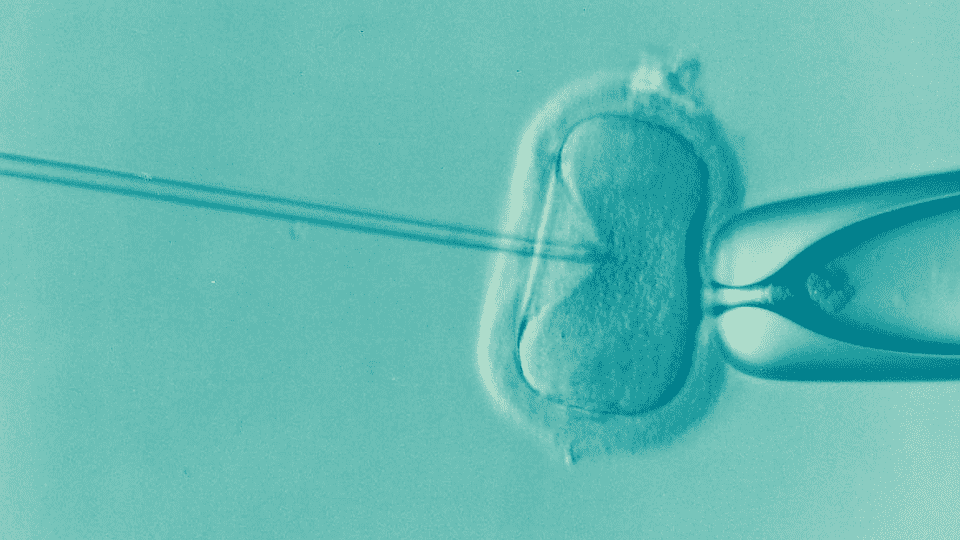Cystic Fibrosis And Infertility
Although, cystic fibrosis does not have any permanent,-cure, prevention can reduce the severity of complications
Cystic fibrosis is a genetic disorder that affects various parts of the body, mainly the lungs, pancreas, intestines, liver, and kidneys. The disease is caused by a mutation in the gene which is responsible for affecting a protein that regulates the movement of salt in the cells. In complicated cases, individuals with cystic fibrosis may have bronchiectasis, chronic Infections, nasal polyps, hemoptysis, pneumothorax, and even infertility, especially in males.
Infertility And Cystic Fibrosis (CF)
Approximately 97 per cent men with cystic fibrosis are infertile. However, many medical researchers have found that these men are not sterile and can have children through assisted reproductive techniques such as IVF, Intracytoplasmic Sperm Injection (ICSI) and Cryopreservation.
The reason for infertility among men with cystic fibrosis is the congenital absence of vas deferens. Other factors as a result of CF are zero/low sperm count, abnormally shaped sperms, or poor motility of the sperm. On the other hand, females with CF have thick cervical mucus which disrupts the process of ovulation, resulting in the lack of menstruation.
The Symptoms
Depending on the severity of the disease, the symptoms of cystic fibrosis may vary. However, an individual can have variant symptoms which may get worse over a period of time. Nevertheless, to detect the disease, doctors count on the following symptoms:
- Primary Symptoms
- Breathing problems
- Chronic lung infection (coughing up mucus)
- Digestive and reproductive issues
- Sinus infection
- Poor growth
- Fatty stool
- Higher than normal level of salt in sweat
- Pancreatitis
- Recurring pneumonia
Respiratory Symptoms
A persistent cough with mucus, breathlessness, stuffy nose, wheezing, lung infection.
Digestive Symptoms
Foul-smelling greasy stools, severe constipation, intestinal blockage. Some other complications may include thinning of bones or osteoporosis, electrolyte imbalance or dehydration, increased heart rate, fatigue, weakness, and low blood pressure.
Treatment And Diagnosis
Although, CF does not have any permanent cure, prevention can reduce the severity of complications. It is important to consult a doctor who will diagnose the problem using genetic and sweat tests for cystic fibrosis after the symptoms of pancreatitis, nasal polyps, etc. are analyzed. In newborns, the screen procedure comprises of a blood test to check the level of (Immunoreactive Trypsinogen or IBT) released by the pancreas. Sweat Chloride test, IRT test, Sputum Test, Chest X-Ray, CT Scan and Pulmonary Function Tests (PFTs) are some important tests used to diagnose CF.
Medications
Medications such as multivitamins, mucolytic, pancreatic enzyme supplements are taken in order to treat and prevent lung infection and problems of the pancreas. Anti-inflammatory medications are prescribed to lessen the swelling in the lungs. Also, mucus-thinning drugs and inhalers are used to sooth the muscles around the bronchial tubes.
Chest Physical Therapy
This therapy is important to relieve congestion from the chest and remove the mucus. It is carried out four-five times a day. Physical exercises are also a part of chest physical therapy. However, always make sure you are under the guidance of your doctors.
Pulmonary Rehabilitation
Nutritional counselling, physical exercises, and breathing techniques are discussed with patients. The main motive here is to improve the health of the lungs.
Surgical Procedures
Procedure such as nasal polyp removal, endoscopy, oxygen therapy, and even lung transplant is carried out, depending upon the problem of the patient.
Assisted Reproductive Techniques
For men and women suffering from infertility due to CF, assisted reproductive techniques like IVF, Intracytoplasmic Sperm Injection (ICSI) and Cryopreservation are the best ways to treat infertility.
Due to thick mucus in the women struggling with cystic fibrosis, it is difficult for the sperm to penetrate successfully, to result in conception. Thus, through IVF this barrier is completely eliminated in this process and the sperm and ovary are extracted separately and fertilized under controlled conditions. ICSI is another effective method and has been successful in 50 per cent cases. However, most women who have cystic fibrosis get pregnant without any difficulty.
Lung Transplant
In patients with severe breathing problems and complications, lung transplant is the only option.
Care At Home
- After treatment, post care is of utmost importance
- A diet rich in antacids, multivitamins and high in fibre and salt is a must!
- Regular exercise helps one lose mucus in the airways and physical activities such as walking and swimming certainly help
- Get timely vaccinations for pneumonia and influenza
- Drink plenty of fluids
